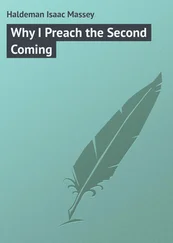“Howdy,” I said.
“I see you are having some trouble with our gate.”
“A little.”
“In fact, you are unable to open it?”
“No, actually I can’t.”
“Of course not. You’re the volunteer?”
“Yes.”
“Volunteer of what?”
“Pardon?”
He wore large glasses. Behind them his eyes were tiny, distant, and his head seemed far too small for his body. Behind him, up the road, a group of boys in powder-blue shirts had gathered to watch us. Under a lone and scraggled tree, a bored cow gazed at me in that eerie, death-announcing way cows have of looking right through you.
“And your name might be?”
“Larry Kaplanski.”
He pumped my hand from the other side of the cattle gate.
“Pleasure, Mr. Kaplansk. So very good of you —”
“Kaplanski.”
His big head winced. He swatted a fly off his ear.
“And your qualifications, Mr. Kaplansk?”
“Qualifications?”
He took off his glasses and examined me. Without them his eyes got even smaller, receded into his head as if an invisible thumb had pushed them in like buttons.
“I see. And what have you brought for us?”
I stared at him. Even with all the shit I’d lugged —
“To be expected!” he boomed. “You came under the presumption that you yourself will be of use to us? Oh, erroneous! Oh, so erroneous!”
“But —”
“Be this as it may, Mr. Kaplansk. Of course it would have been far more advantageous to our development, yes, to our development, had you placed cash in an envelope and, well, to be frank, mailed it! Goas, Private Bag 79, Karibib, Namibia, 9000! Alas! You didn’t!” He turned and raised a thick, baggy hand and swept it across everything in sight, the blue-shirted boys, the cow, the infinite veld — all of it dry, everything everywhere dry.
“Brother Hermanahildas told me to see the Father.”
“Brother who?”
“From The Hague, Brother Hermana —”
“Listen.” He grasped the gate with both hands as if he were preparing to vault it. Then he leaned toward me and whispered, “Have you not heard? No man can serve two masters, Mr. Kaplansk.” He backed away, appraised me again, gnawing the inside of his cheek. “Do you understand the parameters as they’ve been succinctly explained this day of our Lord, March the sixth, nineteen hundred and ninety-one?”
I nodded frantically.
“Very well! As long as you’re here, you’ll teach Standard Six. English and History.” He about-faced, whistled once, as if he were followed by a platoon (and it was true, always the principal commanded an invisible army), and marched up the road toward the cluster of school buildings. Some boys came down and helped me with the gate. The cow, without taking its eyes off me, took a long, long piss.
They stand up when I walk into the room. Every morning, first period, they leap out of their chairs. Goed morro, Teacher . And every morning, my fraudulence more transparent, I plead, Sit down. I beg you guys.
So cold in the shadows and so unbearably hot in the sun, and no in between. I watch the day rise, then blare, then finally leak away through the cracked and broken glass. The boys sit in a swath of dusty light with their foreheads sweating but their feet still cold. The boys who wore their shoes were quietest. The ones who went without, who conserved their shoes for church or soccer, would rub their dry, chapped feet together, and you’d hear it all through class like a chorus of saws.
Rubrecht, Nestor, Jeremiah, Gideon, Sackeus, Albertus, Demus, Mumbwanje, Kalumbo, Magnus, Fanuel (coughing, always coughing, always apologizing for it), Stevo, Nghidipo, Ichobod… Later in the term, Fanuel will spend two weeks at the clinic at Usakos. Bloody lung, Sister Ursula will call it. After Usakos, Fanuel will be transferred to Windhoek General Hospital, and from there we will lose track of him.
But right now another boy, one of the smallest Standard Sixes, Magnus Axahoes (his feet don’t yet touch the floor), raises his hand and stands and whispers, “May I, the toilet, Teacher?”
“You may.”
Magnus walks out of the classroom, then runs across the courtyard, his feet kicking up sand that seems to rise but not fall into the now stark light.
Iremember the slow roll of a road that seems flat. How it suddenly dips into dry sloots I’d forgotten were there, and that swooning that happens in my stomach. I also think of the old woman who sold rocks at a small wooden table. Who did she sell them to? She sat at a place where the veld seemed to repeat itself, where there was no sense of the land passing, or even of time. Nothing in either direction but fence-line and veld, and then there she is by the side of the road, at the top of a rise. You don’t see her until you are upon her. She’s there, waiting. Everything about her has shriveled in the sun but her hands. They seem to have grown bigger than her face, and she sits there, lording over the common rocks she calls gems. That’s what her sign says: GEMS 4 SALE. She doesn’t shout, wave, or cajole. She lets the truth of the sign speak for itself. Those enormous gnarled hands hovering over the table as if she’s trying to levitate it. And then she’s gone — or we’re gone. We never stopped, not one time, all the times we went back and forth along that road. We never even slowed down. Turn your head and she’s a shroud of dust.
In the beginning, none of the other teachers would much talk to me. As I had apparently come to Goas on my own volition, I was suspect. Those first weeks I spent a lot of time cowering in my room in the singles quarters, pretending to write tediously detailed lesson plans.
Mine was the room assigned to teachers who came and went. Rooms in the singles quarters were square boxes, each with one window set low in the wall. From bed, I lived eye-level with the veld. My view was of the toilet houses, and beyond them the Erongo Mountains that would always be too far to walk to.
The teacher who’d lived in my room before me had papered the walls with the German beer calendars that came free in the Windhoek Advertiser . Everywhere you looked were shirtless blonde buxoms in tight shorts. There was one girl in nothing but a red bandanna and a Stetson staring down from the ceiling above the bed, her breasts like about-to-be-dropped bombs. One day I ripped her down, and was tearing off the others when there came a knock on the wall. Then a voice, my neighbor’s, Teacher Pohamba’s: “What are you doing, Teacher?”
“I thought I’d clean up a little.”
The noise of him lifting himself out of bed. He opened his door and came over to my window and squatted down. Then he stuck his head through the torn screen. Teacher Pohamba yawned at me. It was meant, I think, to be a sympathetic, comradely yawn, but it came out too big, like a kind of maw. “Hand over the tits, Teacher.”
I gave him the scraps and he stuffed them in his shirt pocket, but he remained outside my window. Teacher Pohamba pitied me. Me standing there on the cement floor in my Walgreen’s shower shoes. “Go to sleep,” he said finally. “Don’t you know it’s siesta?”
When the first study-hour triangle rang, he came to my window again and told me to follow him. Together, we walked across the soccer field to the married teachers’ housing, to the circle of plastic chairs in front of Teacher Obadiah’s. The old man was holding court. Everybody was still drowsy from sleep and only half listening. Teacher Obadiah wasn’t as old as he liked to consider himself, but he was one of those people whose age baffles. He might have been fifty-five; he might have been seventy-five. He reveled in the crevices of his face and his white hair. That day he had a week-old Namibian on his knee and was lamenting a story about corruption in the Finance Ministry of the new government. The only thing the white government did fairly, Obadiah said, was teach the black government how to steal.
Читать дальше












